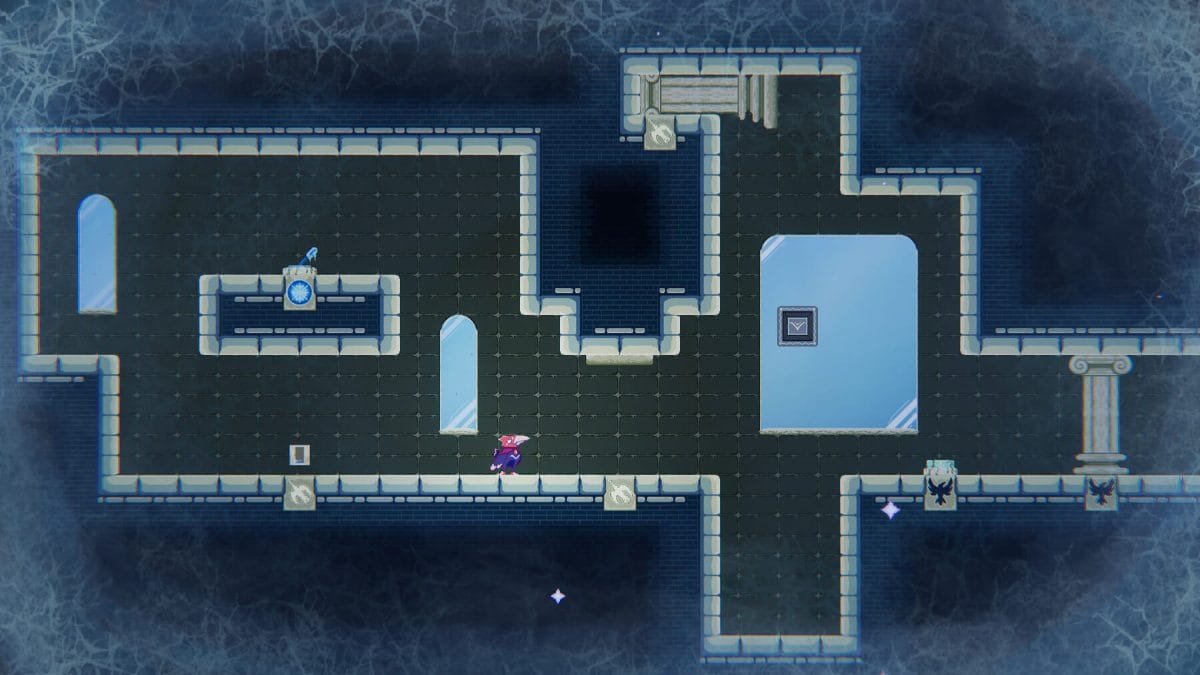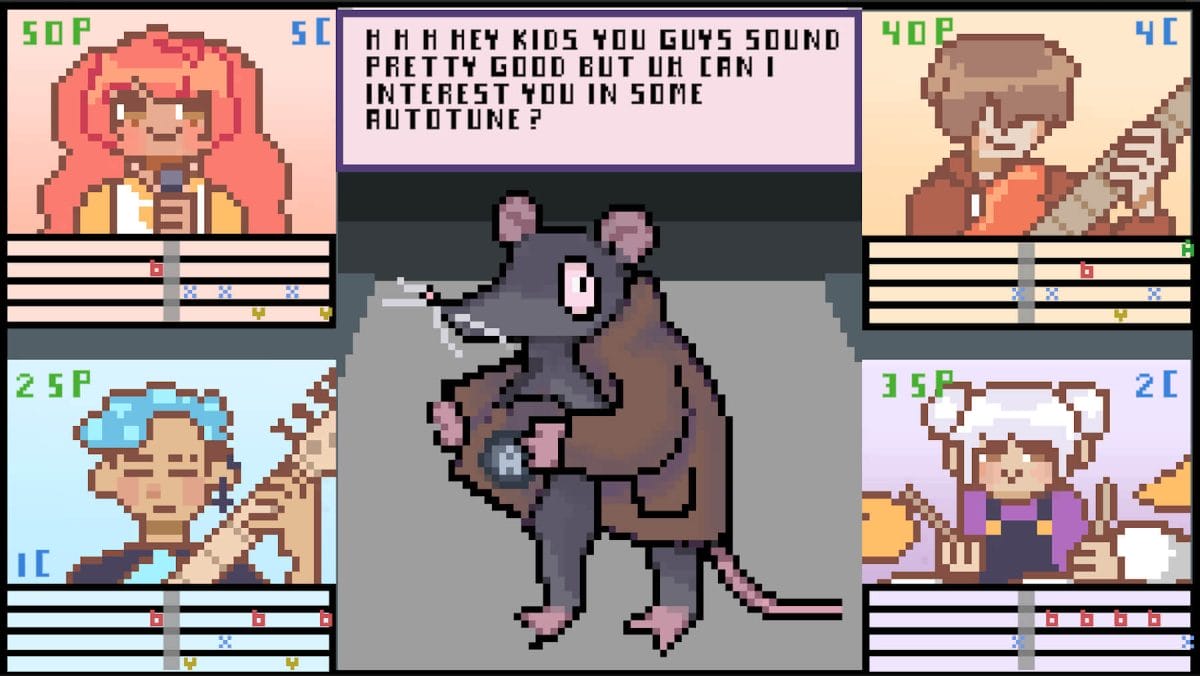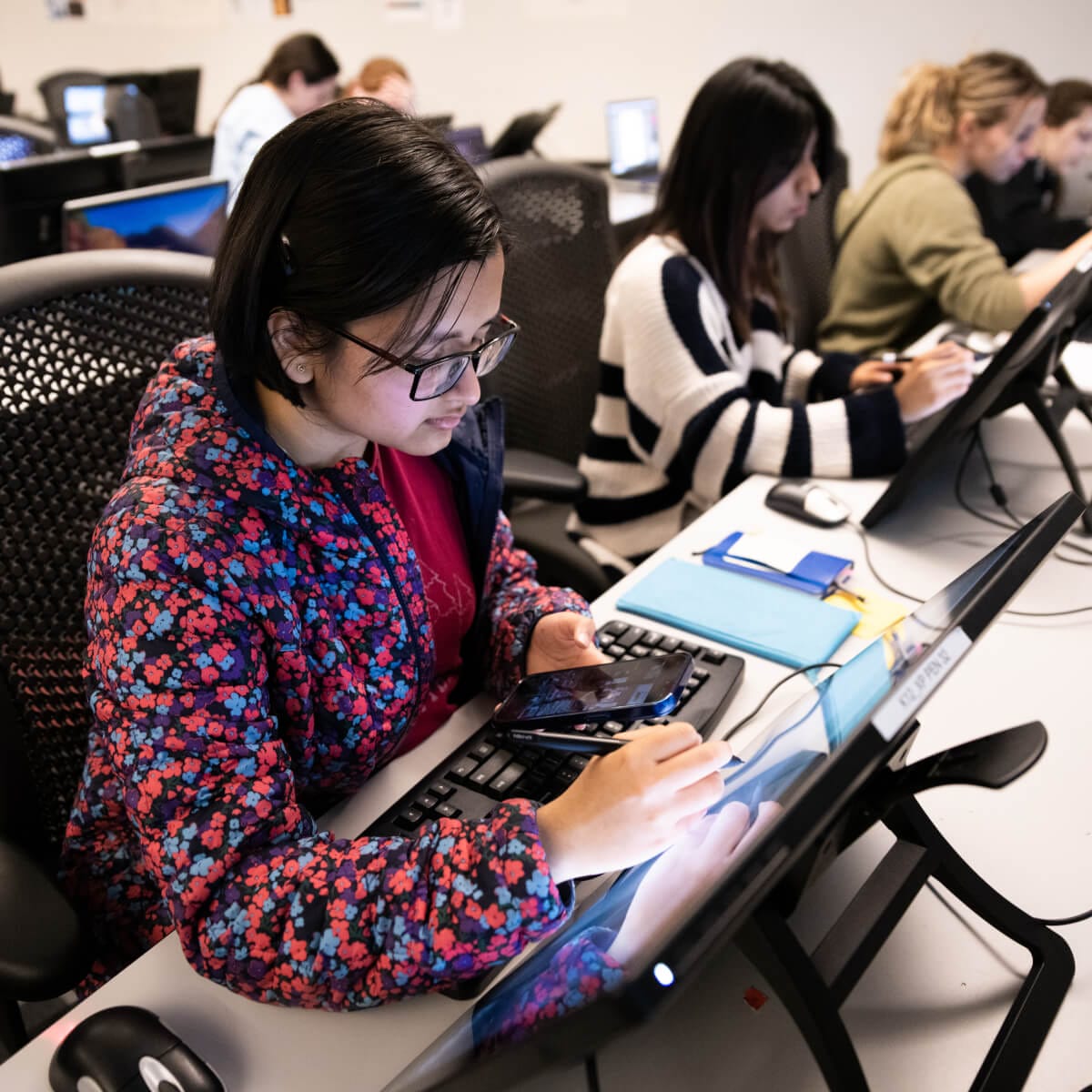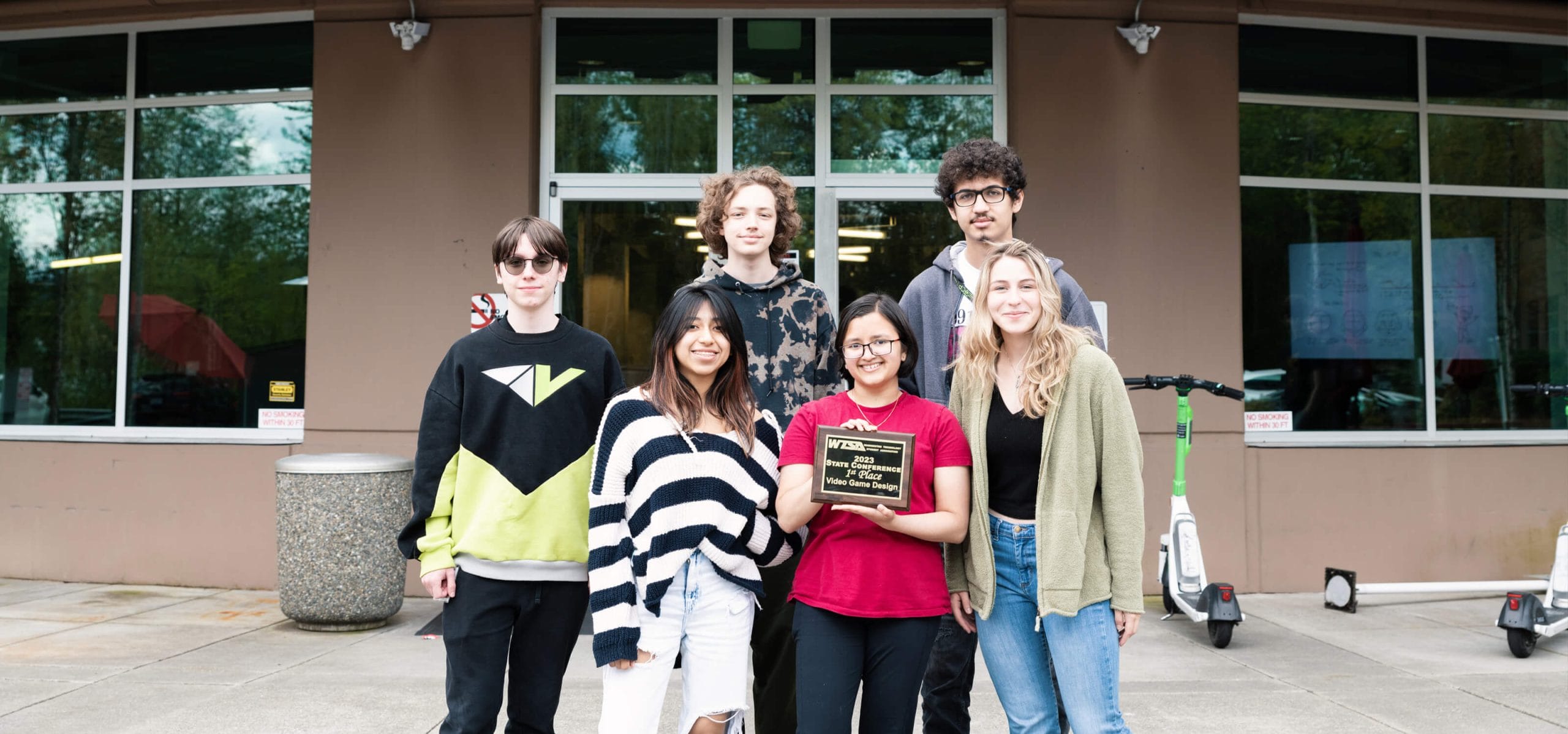DigiPen Academy WANIC students win big in Washington video game design competition
This article originally published on DigiPen Institute’s website May 30, 2023. View article here.
Two teams of students from DigiPen’s WANIC high school programs won big at a recent state-level game design competition, taking home the first- and third-place prizes in the Washington Technology Student Association (TSA) video game design challenge.
The participating teams were given roughly three-and-a-half months to develop an original game — complete with documentation — based on a specified theme. Following the submission of their games, representatives from each of the semifinalist teams were invited to the annual TSA state conference last March in Seattle, where they were interviewed by a panel of judges about the game itself and its development.
“They asked us questions about how we worked together,” Mihika Phadke, a student from the DigiPen Art & Animation (Year 1) course, said. “They asked us specifically what was the hardest thing that you encountered while designing it.”
The theme for this year’s contest was “puzzlers and party games,” prompting most of the teams to lean into either one of the two genres. As one of the members of the first-place game team, Phadke created pixel art for the puzzle platformer Avarice, a game that takes place inside a temple of birds.

“You’re one of the temple architects, and in an attempt to make it go up higher in the sky, you cause it to fall out of the sky, into the bottom of the ocean. So now you’re trapped inside there, and you have to basically do little puzzles,” Phadke said. “There’s a bunch of mechanics that you use to get past the levels and eventually get to the main room where you fix the temple and it rises back into the sky.”
Drawing on the other half of the two-part theme, DigiPen’s third-place-winning team opted to create a party game. Luka Voeller, an artist from the DigiPen Art & Animation (Year 2) course, described his team’s game, Grand Stage Garage, as a four-player rhythm game with both cooperative and competitive elements.
“You play as the four people in a garage band that you’re just trying to get through a rehearsal with, and people keep showing up at your door to bother you,” Voeller said. “Someone thinks the music is too loud. Someone has the pizza you ordered. And you have to play the music to get them to go away. If you keep playing long enough, they’ll leave.”
DigiPen’s Redmond campus serves as one of multiple teaching locations for the WANIC Skill Center (WANIC stands for Washington Network for Innovative Careers), one of 13 Skill Centers in Washington that provides tuition-free technical and professional education to high school juniors and seniors. DigiPen currently offers five yearlong WANIC courses in art and animation, data analytics, game design, music and sound, and video game programming. Additionally, some courses offer second-year curriculum for high school seniors who have completed the first-year courses.

This was the first year that DigiPen WANIC students took part in the TSA game design competition. In all, five DigiPen WANIC teams participated, with each team comprising a mix of students from the Art & Animation and Video Game Programming courses. Although most of the students had worked on prior game-related projects, whether through game jams or other WANIC classroom projects, the games made for the TSA competition marked a notable increase in scope, complexity, and multidisciplinary collaboration.
“I functioned as the middleman between the artists and the programmers for a lot of things, especially when it was hard to get those first ideas running in the brainstorming stages,” Peleg Zahavy-Mittelman, a student from the Video Game Programming (Year 1) course and Grand Stage Garage team, said. “My personal biggest difficulty, from a management perspective, was trying to find different tasks for the programmers coming from various background levels of knowledge in programming.”
Representatives from the Avarice team also pointed to communication challenges between the artists and programmers as an early stumbling block for getting their own game — much like its temple setting — off the ground.
“It was just kind of a lack of understanding on both sides. Like for us it was kind of hard to understand why you wouldn’t want this specific asset to be in here, or why you wouldn’t want this plot element,” team programmer Ray Bowman said. “For the first month, we could not decide on the pixel art resolution.”

Despite those and plenty of other obstacles, representatives from both of the winning teams said they were proud of what they managed to accomplish together.
“I sent it to my family and a few of my friends. I think my dad got really invested in the game, and he was trying to beat every level,” Phadke said. “He was like, ‘Don’t give me a hint!’”
“I know for me, my favorite part of it was seeing my little cousins argue for hours over who should get the time on the controller while playtesting my game. That was a really fun older cousin moment,” Zahavy-Mittelman said.
Thanks to their placement at the state level, both teams qualified for the 2023 National TSA Conference in Louisville, Kentucky — a great accomplishment for the DigiPen WANIC program’s first year of participation in the competition.
The WANIC student members from team Avarice include Ray Bowman, Hugo Devant, Ava Grays, Dani Montes-Sobal, Mihika Phadke, and Kaya Tacer. The student members from team Grand Stage Garage include Riley Clement, Nic Oliverio, Luka Voeller, Josh Voight, Veronika Yufereva, and Peleg Zahavy-Mittelman. Both games were developed using the Unity game engine.


